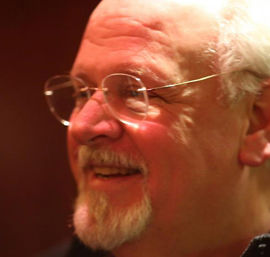The dust has settled from the three-week antitrust trial between Epic Games and Apple but the outcome has still yet to be decided.
Judge Yvonne Gonzalez Rogers has warned that it will take some time to go through all the evidence — plus balance this matter with the thousands of other cases she’s handling — but has said she hopes to make a ruling “while the memory of the testimonies [and] the arguments are fresh.”
With a similar mentality, it’s time for us to call on our panel of legal experts to get their final thoughts on this potentially industry-shaping trial — most of whom agree that both sides made a valiant effort in presenting their arguments.
The Game Attorney’s Thomas Buscaglia said the Fortnite firm’s case was “certainly better than many expected,” noting that Apple did not help itself with some of its defending remarks.
“It’s getting harder for platform holders to justify that 30% cut, and I think we will see these changes — either willingly, or by force of law”
Angelo Alcid, Ludic Legal
“Apple claiming that they have no idea what portion of their revenue or profit come from games on their app store is ludicrous,” he says. “Disingenuous arguments to the court do not further a party’s position. This is further exacerbated by their argument of ‘We need all this revenue to pay for security and privacy,’ which seemed more like a marketing pitch than an accurate reflection of their actual financials. Presenting a bad argument over and over does not make it good — just redundant.”
Gamma Law managing partner David B. Hoppe commented on Epic’s positioning of itself as not just acting in self-interest but representing small developers and gamers everywhere against a greedy megacorporation — an attitude made clear by the codename ‘Project Liberty.’
“While that may resonate with many people, it is not a basis for a legal decision or for, in effect, punishing a company for being successful,” he explains. “That’s especially true if it would result in complications and problems for consumers, and disrupt a service that seems to have worked very well for them.
“Apple argues that technological incompatibility stokes competition. Players have choices as to how they play Fortnite and other games. The process seems to work well even though developers would like to earn more and consumers would like to pay less. That’s the way it is in any supplier/distributor/customer relationship.
“There’s a heavy burden on the plaintiff in proving antitrust allegations that in my opinion Epic couldn’t meet. It’s not a problem with how they presented their case, but ultimately I don’t think Epic could legally support the proposition that Apple’s business model should be dismantled — Epic isn’t really asking for that, but that would be the effect.”

Thomas Buscaglia, The Game Attorney
Richard Hoeg, managing partner of The Hoeg Law Firm, reiterated that Epic “always had the tougher case to make” but believes Apple presented itself as having the stronger argument during the trial itself.
“Epic poked plenty of holes in Apple’s process highlighting security and other failures — as well as disgruntled developer partners — but the law does not require Apple’s perfection,” he says.
Like others on the panel, he adds that Epic “chose its moment wisely” given the increasing scrutiny into Big Tech firms from governments and regulators around the world.
“Epic likely felt that the time was ripe to test whether it could break into iOS and other ecosystems, and their case is not without certain strengths,” he says. “They attempted to establish Apple as arbitrary and inconsistent in its rule application, with the implication that this was a cover for anti-competitive behavior. If Judge Gonzalez Rogers’ interjections are any indication, that attempt may have borne some fruit.”
As with our previous article, the judge’s contribution to proceedings was noted by all our experts. Gonzalez Rogers interjected during several testimonies — most notably that of Apple CEO Tim Cook — with questions of her own that some believe may indicate how she might rule when it comes to her final case. But Hoeg warns that we may not be able to read too much into her lines of inquiry.
“While much has been made of that questioning — and Apple should be rightly nervous about it — it remains to be seen just how much that was the judge playing devil’s advocate, and how much was her tipping her hand at her thought process,” he says.
“Epic poked plenty of holes in Apple’s process highlighting security and other failures but the law does not require Apple’s perfection”
Richard Hoeg, The Hoeg Law Firm
Buscaglia points to how Gonzalez Rogers repeatedly circled back to Apple’s anti-steering policy — the rule that developers are not allowed to advertise alternative and potentially cheaper payment channels in their iOS app — believing, as others do, that this may suggest changing said policy would be a simple remedy to the case.
Hoppe, meanwhile, believes Gonzalez Rogers’ questioning has highlighted arguments in which Epic “scored some points that could be further developed on appeal.” For example, she noted during the closing session that Apple’s 30% commission has been in place since the App Store first launched.
“If there were no barriers to entry and if the iPhone environment is just one of many similar arenas where games can be played, there should have been market entrants that drove down the marginal profits and forced down the commission,” he explains. “Since that hasn’t happened, then arguably there’s not any real competition for the services iPhone provides, which is to say that iOS platform is not the same market as PC and console.”
David Kesselman, partner at California law firm Kesselman Brantly Stockinger, seems to agree. Based on Gonzalez Rogers’ questions for Tim Cook, he believes the judge does not seem to think Apple is responding to competitive pressure.
“All of this suggests that the judge could be mulling a finding that the App Store, and the ‘walled garden’ that Apple has created, is not responsive to market forces,” he says. “But, under modern law, that would not be enough to find in favor of Epic.
“The judge would first have to find that Apple has monopoly power in a defined market — and then wielded that power to stifle competition. And the judge appeared to express frustration with the parties’ dueling market definitions — something that occurs in most every antitrust case of this type where each side hires high-priced economists for the proverbial ‘battle of the experts.'”

Most of Apple’s defence was based around proving the need for its ‘walled garden,’ citing its consumer privacy and security policies it believes makes iOS a less vulnerable ecosystem than Android. But Kesselman notes the judge “seemed to be looking a step or two ahead.”
“Even if Apple has a legitimate justification for its policies, she can still consider whether there is a less restrictive alternative to what Apple has imposed,” he says. “She repeatedly asked why it wouldn’t be possible for Apple to allow Epic and others to at least inform consumers that they could utilise an in-app payment system other than Apple’s. It suggests that she is at least seriously mulling whether that is a less restrictive alternative that she could impose on Apple as a compromise.”

Angelo Alcid, Ludic Legal
However, it’s one of Gonzalez Rogers’ earliest comments in this entire process — that the case could have “serious ramifications” for other ecosystems, such as those operated by Nintendo, PlayStation and Xbox — that have been in the back of everyone’s mind during this trial.
Hoppe notes that if Epic won, and this was upheld after the inevitable appeal, it would “call into question a basic premise of the digital content business that has evolved over 20 years.”
“[That premise being] that hardware makers can regulate the content that users access on their devices, and profit from that,” he explains. “Epic has a good point – if you think about it, it’s not obvious that the company that makes the physical device should have the ability to control what content you access on it. It’s just that it’s worked really well for consumers, and that’s been a critical factor in adoption of mobile and probably also consoles.
“My feeling has always been that this tying of the hardware and content was not going to last over the long term. It hasn’t worked in other sectors. If there was a win by Epic, the immediate implications would be very big for existing models throughout the digital content business. But personally I think that’s the direction that we’re headed anyway.”
Ludic Legal’s Angelo Alcid — who also works as cloud partner contracts manager at Google, a firm against which Epic has filed a similar lawsuit — believes the judge should rule in Epic’s favor. If she does, Apple would have to concede a central pillar of the Fortnite firm’s argument: that it should allow direct payments to developers and isn’t entitled to a cut of these transactions.
“This isn’t entirely without precedent,” he says. “For example, Apple has already faced antitrust issues with regard to ebooks. If you go and download the Kindle app in iOS for example, now — after being sued by the US Department of Justice for anticompetitive behavior — it forwards you off to the browser for ebook purchases.
“There’s a heavy burden on the plaintiff in proving antitrust allegations that in my opinion Epic couldn’t meet”
David Hoppe, Gamma Law
“As for games in general, I suspect other platforms may begin allowing alternative payment and purchase methods for in-app purchases. It’s possible we may even see other previously closed ecosystems allowing third-party marketplaces — the way Itch.io is on the Epic Store, which was called out during the trial by Apple.”
Kesselman believes an Epic win would have consequences far beyond the games space, even impacting companies like Google, Facebook and Amazon: “It could create a roadmap for others to try to argue that the ‘walled gardens’ or ecosystems created by these companies can be pierced under antitrust law. And no doubt the government agencies would carefully review any decision as they pursue their existing cases against Google and Facebook and any ongoing investigations.”
However, Hoeg adds: “If the judge, as she may be signaling, intends to hold for Apple on the market question — there is no monopoly — while still finding one or more provisions of its developer contract to be ‘unreasonable restraints of trade,’ the decision will have a far less broad impact.”
It’s impossible to fully predict how the judge might rule, but it’s still hard not to speculate as to who might prevail in this fight. For Hoeg, while the case presented “was very muddy,” the outcome would be clear if he were in Gonzalez Rogers’ position.
“Epic failed to establish both that the app distribution or IAP markets were ‘relevant’ markets for purposes of antitrust law, and further failed to establish why Apple’s business justifications for the contractual provisions they established should be thrown out as nakedly anti-competitive,” he says. “Apple can be a bad company with upset customers or developers. But that doesn’t mean they are acting illegally on this score. As such, I would rule in Apple’s favor on all merits.”

Hoppe adds: “Apple has shown that, while many of its developers believe the commission is too high, it offers a value proposition that they can’t afford to pass by. It’s similar to the way Walmart handles suppliers. Walmart uses its market power to muscle down wholesale prices, but because of its consumer reach the suppliers still do well. They lose money on every sale, but they make it up on volume. So I expect we’ll see a decision for Apple, but perhaps with some conditions like they have to start allowing developers to inform iOS customers of purchase alternatives outside of iOS.”
Kesselman is less confident, believing the judge’s comments and questions indicate she could still find in favor of Epic. “I don’t think Apple can walk away feeling confident that it prevailed. That’s not something that many antitrust practitioners might have expected going into this.”
“Epic vs Apple roadmap for others to argue ‘walled gardens’ or ecosystems by these firms can be pierced under antitrust law”
David Kesselman, Kesselman Brantly Stockinger
Finally, it’s worth reflecting on the lessons the games industry can learn from the Epic vs Apple trial — and not just about the importance of muting public participants in an open conference call.
Buscaglia — admitting that he “probably shouldn’t say this as a lawyer” — observes that this case may have shown how technological solutions can be far more efficient than legal ones.
“The law grinds slow and long,” he says. “This case is just starting. I expect it to take a few more years to work its way through the appellate court system after the final judgement is issued. So, if at all possible, find a tech solution.”
Alcid’s first takeaway is one that may not relate to the case directly, but certainly relates to the bulk of the press coverage it generated in the first week. Many of the stories surrounding the case were based on correspondence between various companies long before the trial began, with those messages used by both sides as evidence.
“I tell my clients not to ever write an email that they wouldn’t be comfortable including in a discovery request,” he says. “If nothing else, the discovery for this trial has been a treasure trove for journalists and analysts, giving unique insight into the nature of some of these business dealings — and also visibility into some perhaps less-than-professional correspondence at times.
“I think the other big lesson is that nothing lasts forever. For a long time the ‘30% cut of everything’ seemed adamant, just the cost of doing business on all these closed platforms. As more and more alternatives pop up, it’s getting harder for these platform holders to justify that cut, and I think increasingly we will see these changes — either willingly, as in the case of Epic, Microsoft, and so on, or by force of law.”
Hoppe agrees, underlining this final point: that games businesses should never become too comfortable with the status quo.
“After years of huge changes and dramatic growth in the games business, and digital distribution generally, it’s tempting to think that we’ve reached a point where at least the basic models aren’t going to change much,” he says. “But who would have guessed a few years ago that we’d be talking about the possibility of a court decision that could completely upend the business for digital distribution?
“There are going to be lots of changes ahead, and successful players in the games business are going to be pushing ahead to anticipate and capitalise on them.”
You can follow all of our Epic vs Apple coverage here, or read the highlights in our ongoing roundup.
GamesIndustry.biz
Source link
Related Post:
- Epic v. Apple: Judge Rules Apple Must Allow Developers to Direct App Users to Outside Payment Options
- Judge Rules in Favor of Epic Games, Orders Apple to Allow Developers to Offer In-App Purchasing
- Epic v Apple judge grapples with the big question: What is a videogame?
- Epic appeals against judge's ruling in Apple antitrust case
- Epic, Apple make their closing statements as three-week antitrust trial comes to an end
- Epic vs Apple ruling forces Apple to allow third-party purchasing within 90 days
- Epic v. Apple: Court Says Apple's 30% Sales Cut Is Unjustified
- Doom Eternal abandons Invasions in favour of a brand new horde mode
- Square Enix says putting Outriders on Xbox Game Pass has "worked in its favour" • Eurogamer.net
- Fortnite trial judge decides Apple cannot stop developers linking to other payment methods • Eurogamer.net
